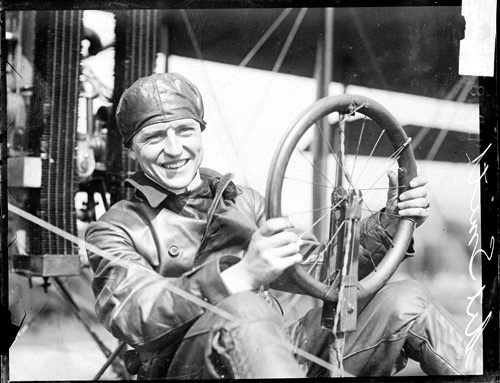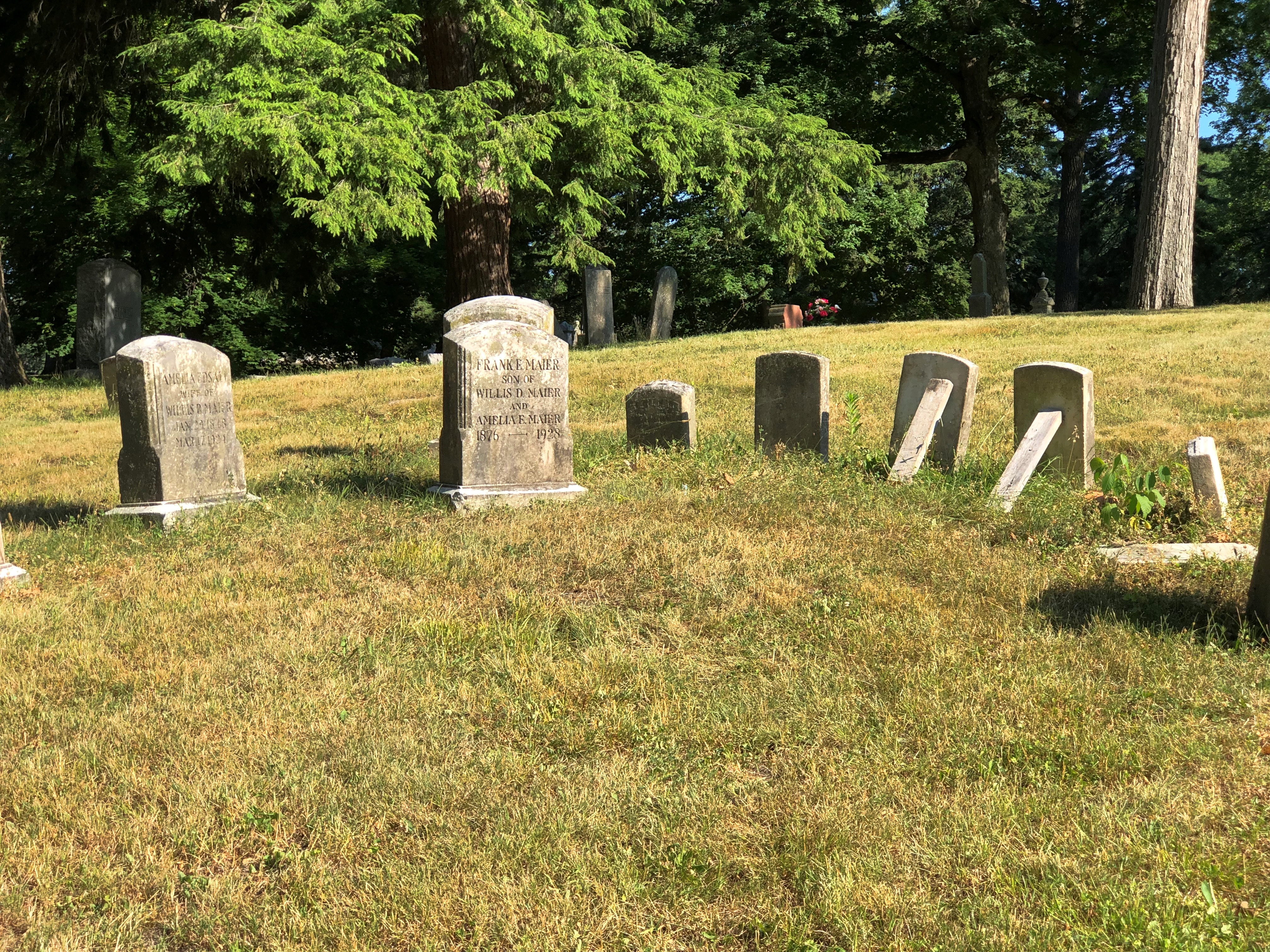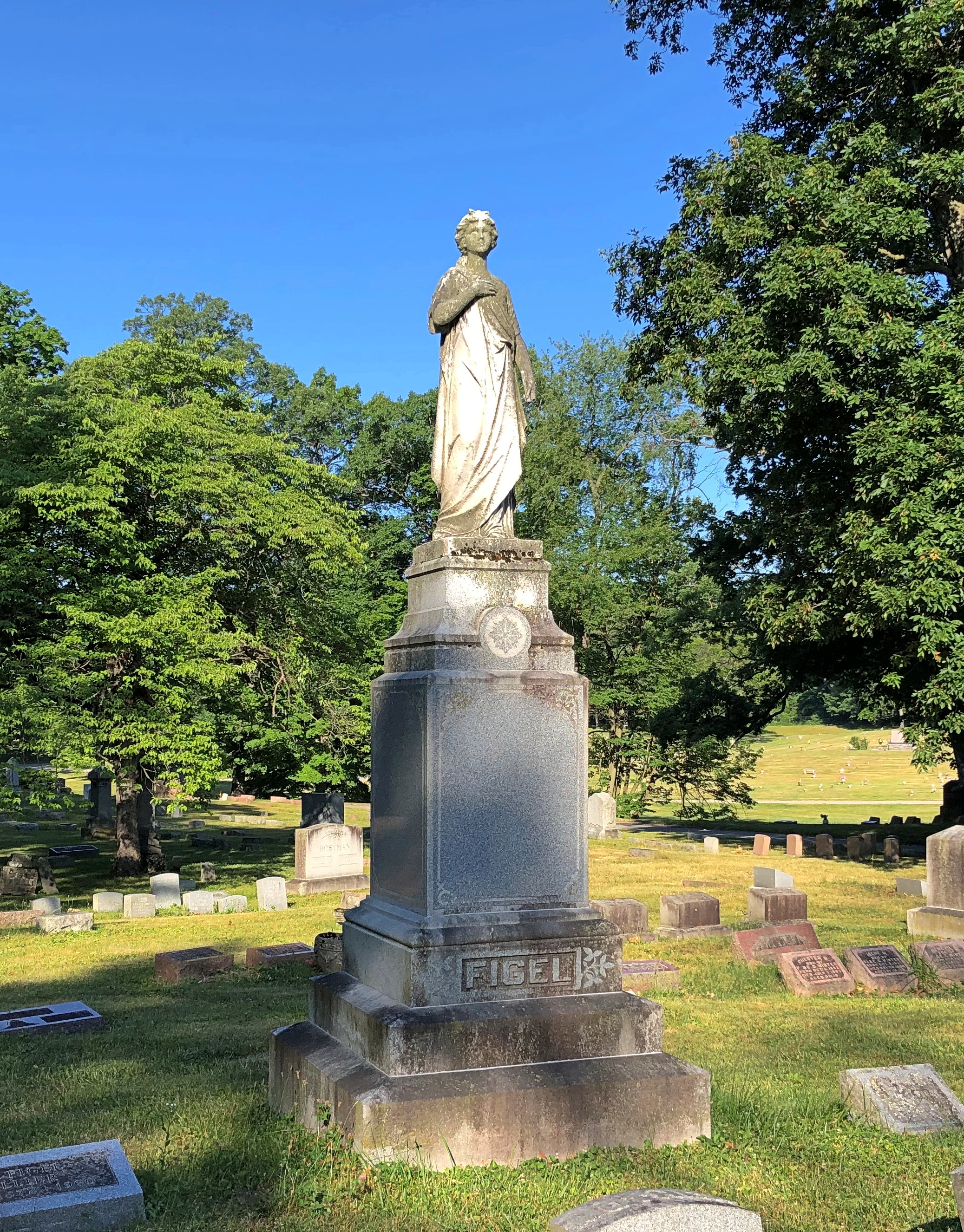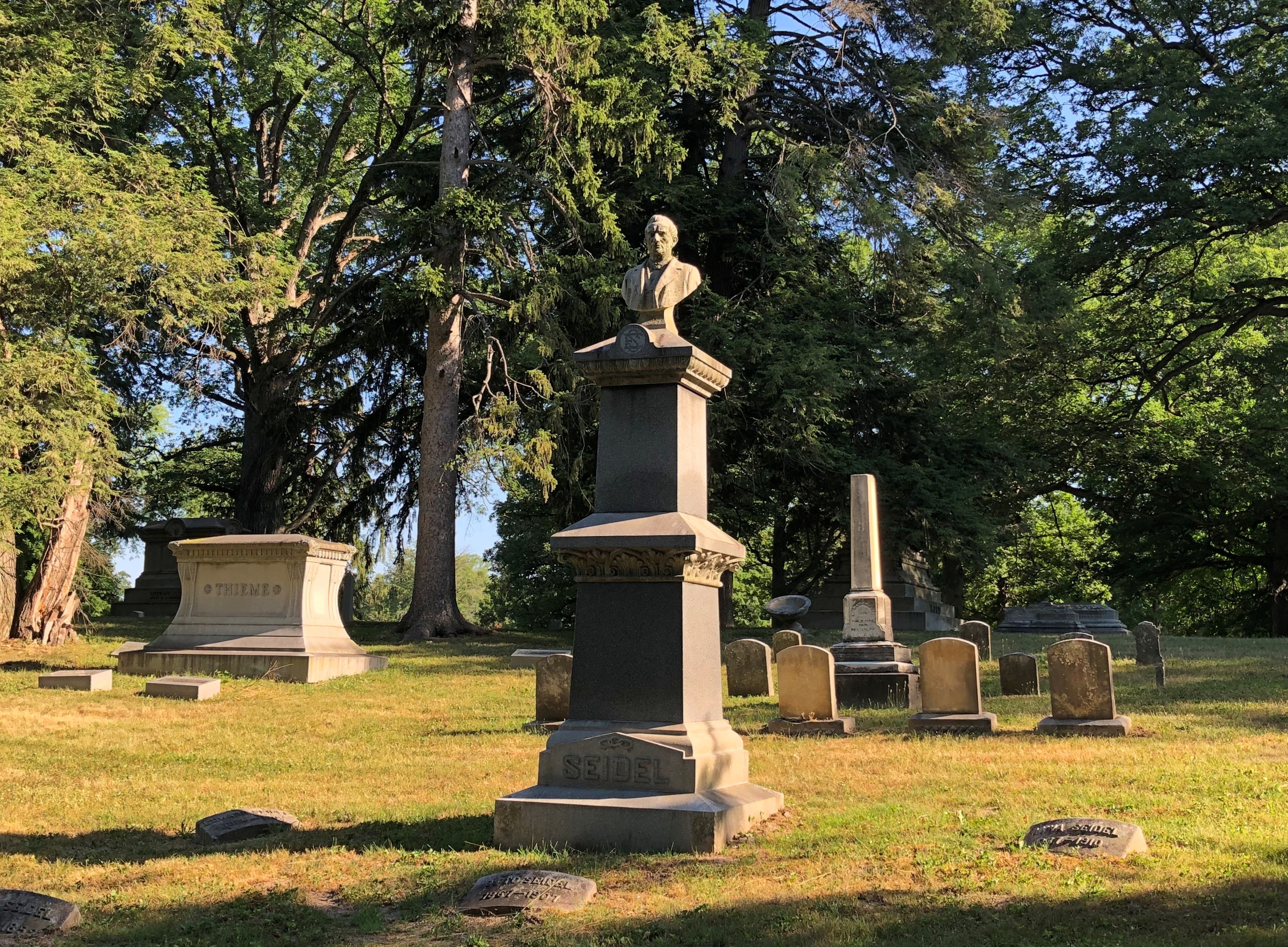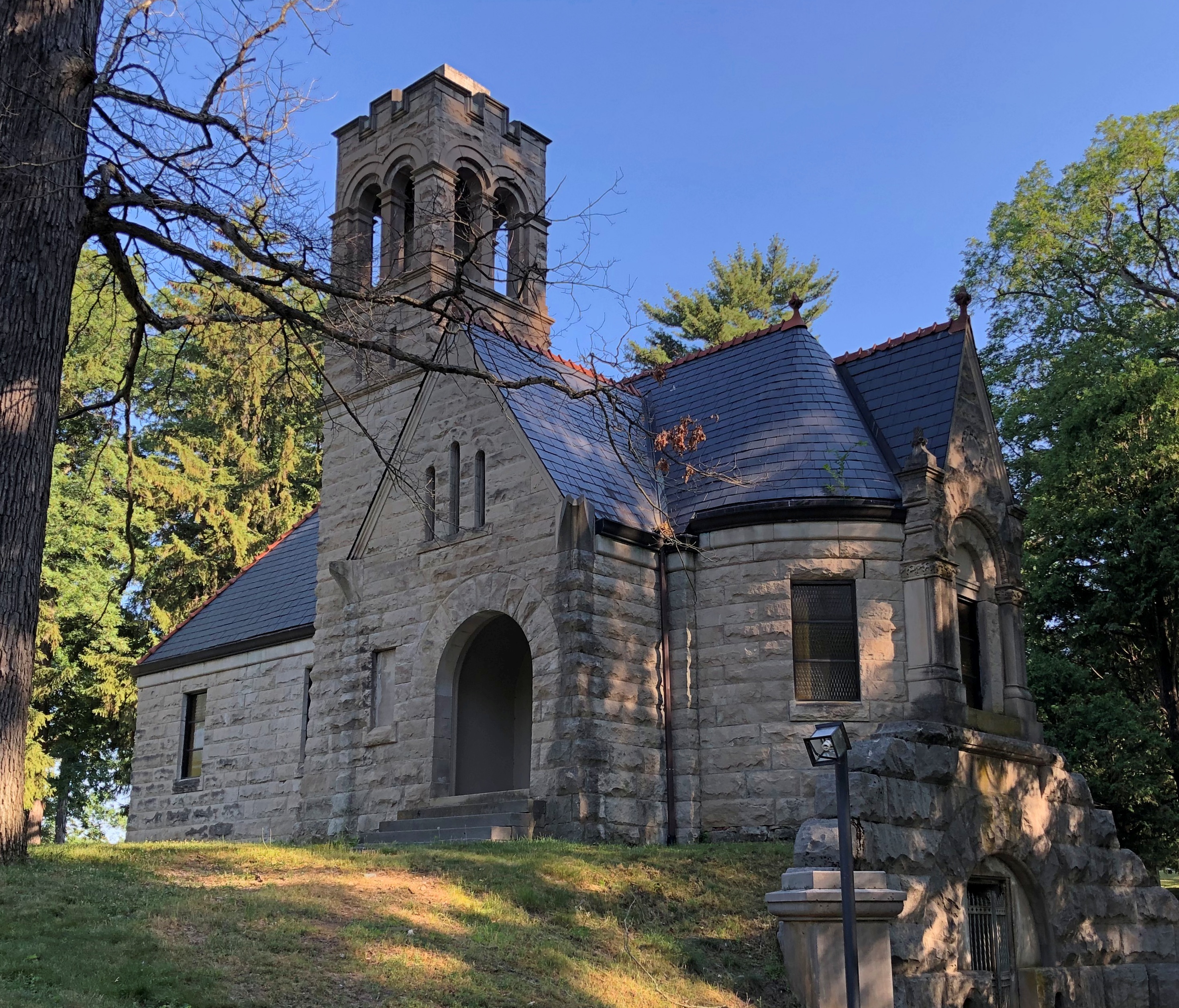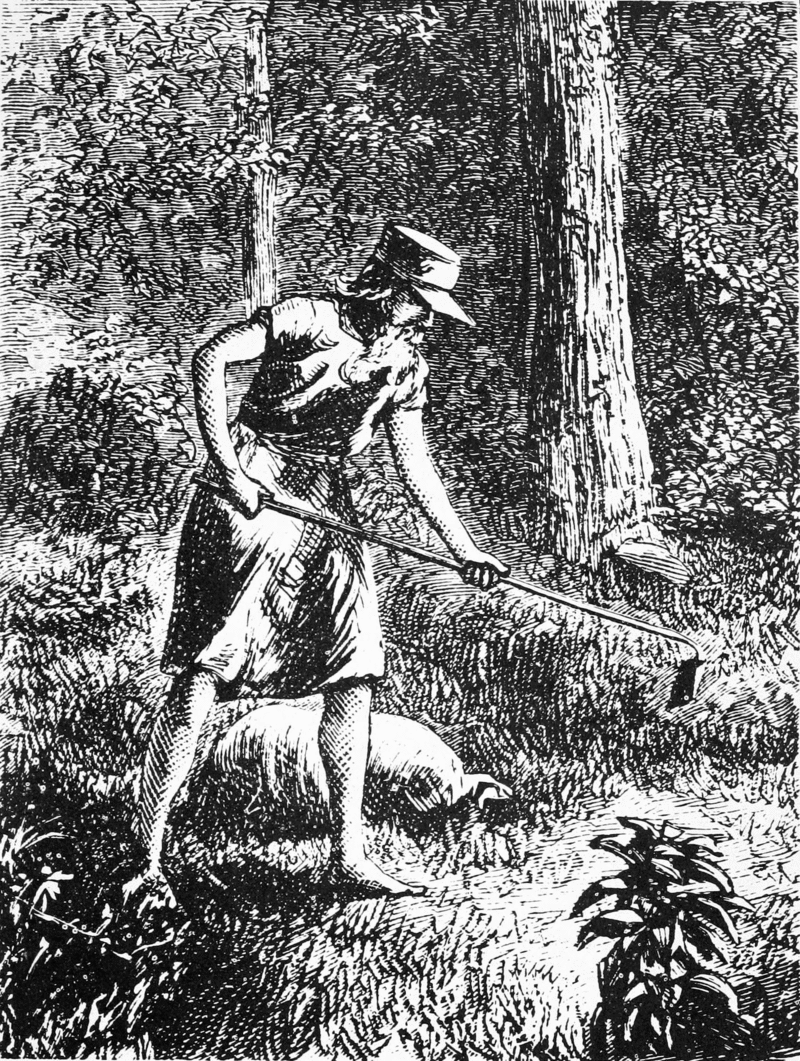I didn’t see the grave of Art Smith in Fort Wayne early this month. I wasn’t looking for it, because I’d never heard of Art Smith. Only after reading about Lindenwood Cemetery a few days ago, and some time after I visited there, did I find out about him.
Art Smith, early aviator, Bird Boy of Fort Wayne. In 1915, he took Lincoln Beachey’s job as a exhibition pilot at the Panama-Pacific International Exposition, after Beachey carked it in San Francisco Bay. Smith himself had a date with aerial death, but that was later, while flying the mail in 1926. He’s been at Lindenwood ever since.
An aside to that aside. According to Wiki at least, Smith was one of only two men trained to fly the de Bothezat helicopter, also known as the Jerome-de Bothezat Flying Octopus, which was an experimental quadrotor helicopter.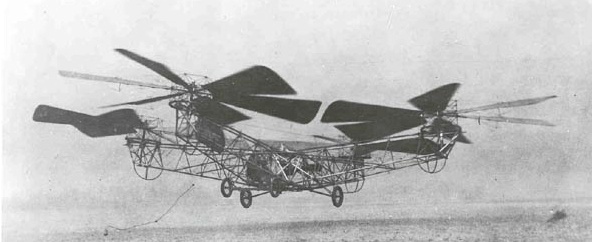
That tells me that among those magnificent young men and their flying machines — you know, early aviators — Smith must have been especially crazy even in that fearless bunch, whatever his other skills as a pilot or virtues as a human being.
Lindenwood Cemetery dates from 1859, and is the Fort Wayne’s Victorian cemetery. It looks the part. All together about 69,000 people rest there, and at 175 acres, it’s one of the larger cemeteries in Indiana. As usual, I arrived in the mid-morning, by myself.
I did see one noteworthy burial soon after arrival. That is, the memorial itself seemed to make that claim. He founded two churches, so the claim seems to have some merit.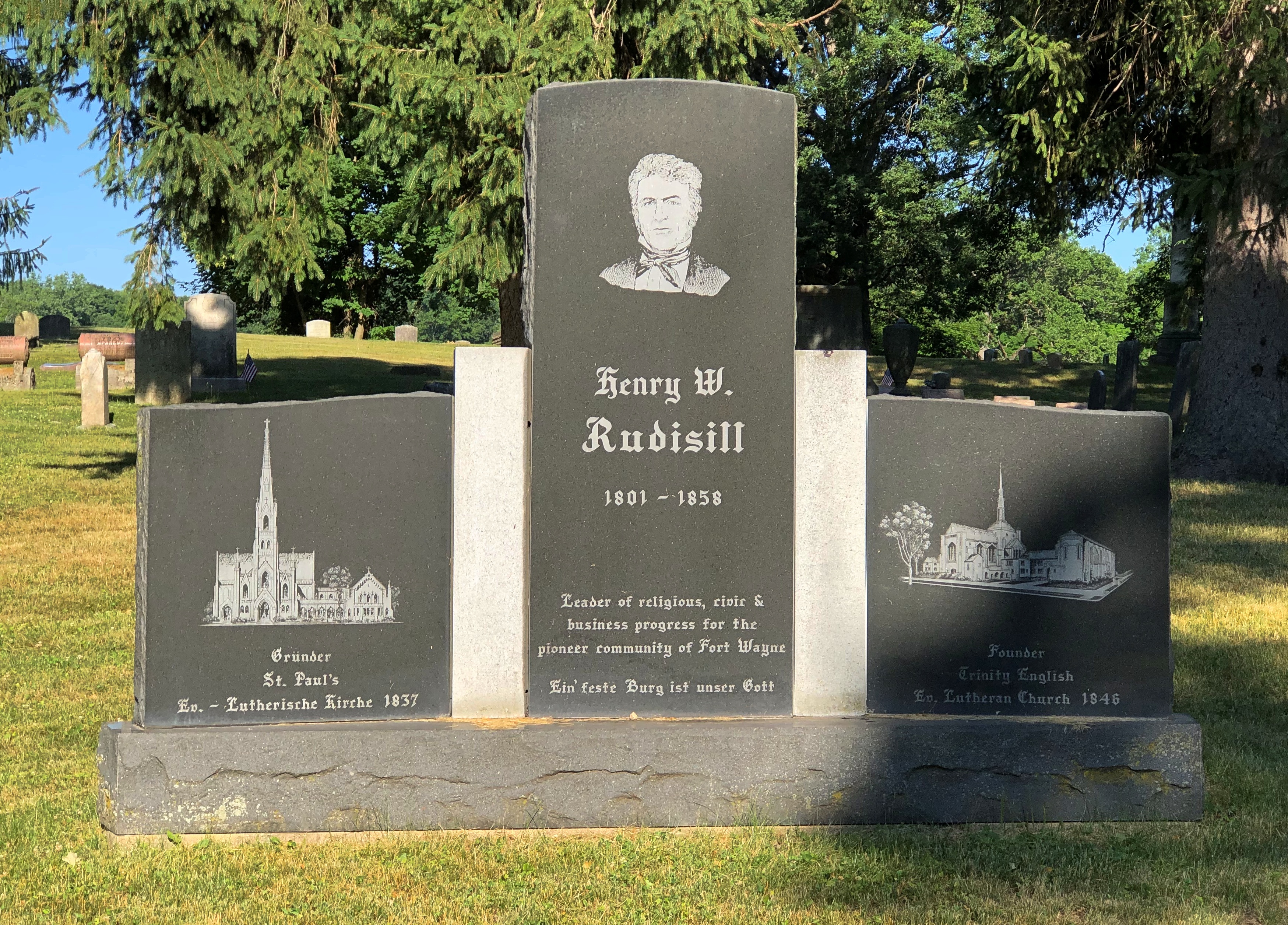
It’s a forested area, as I’m sure was intended.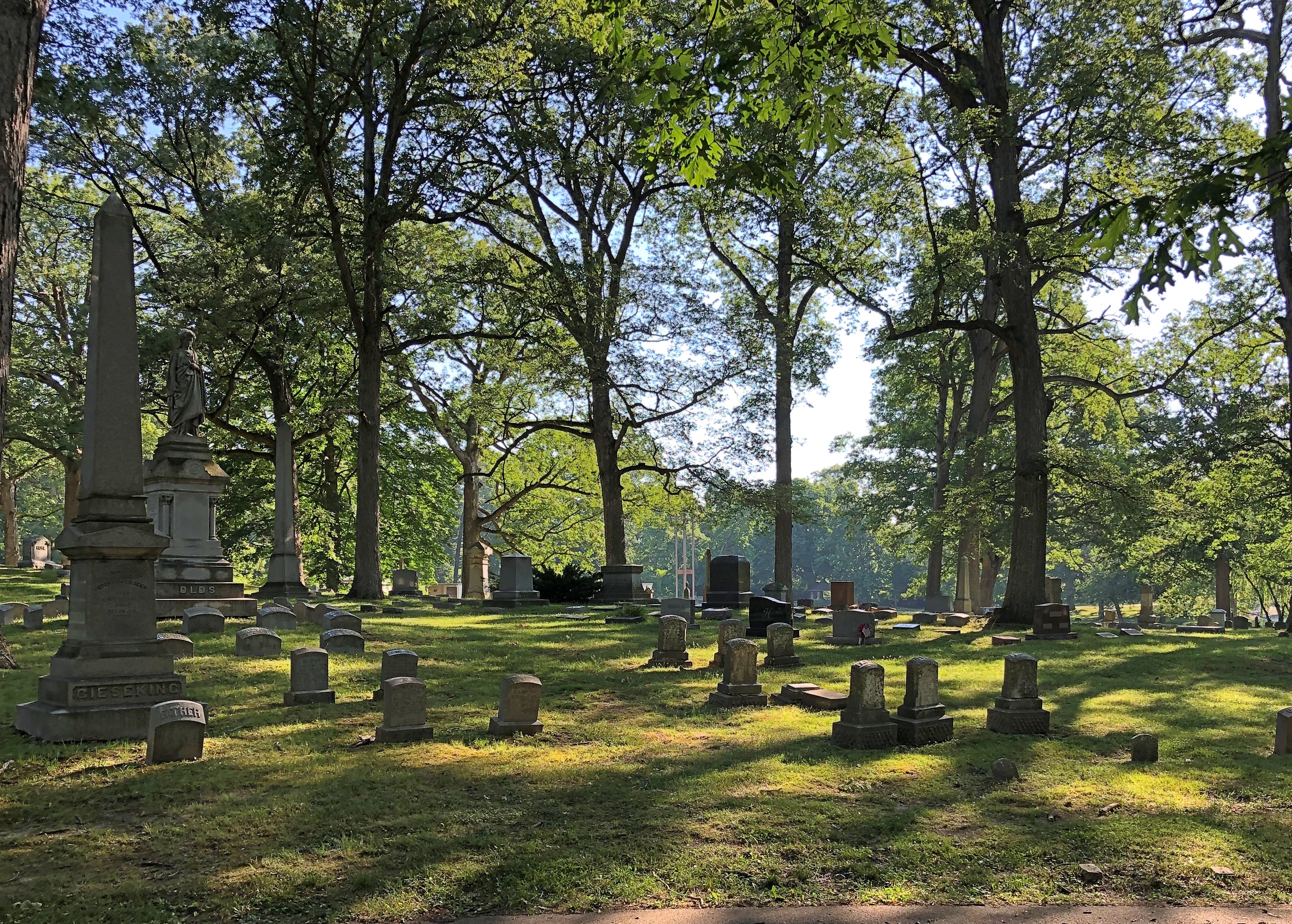
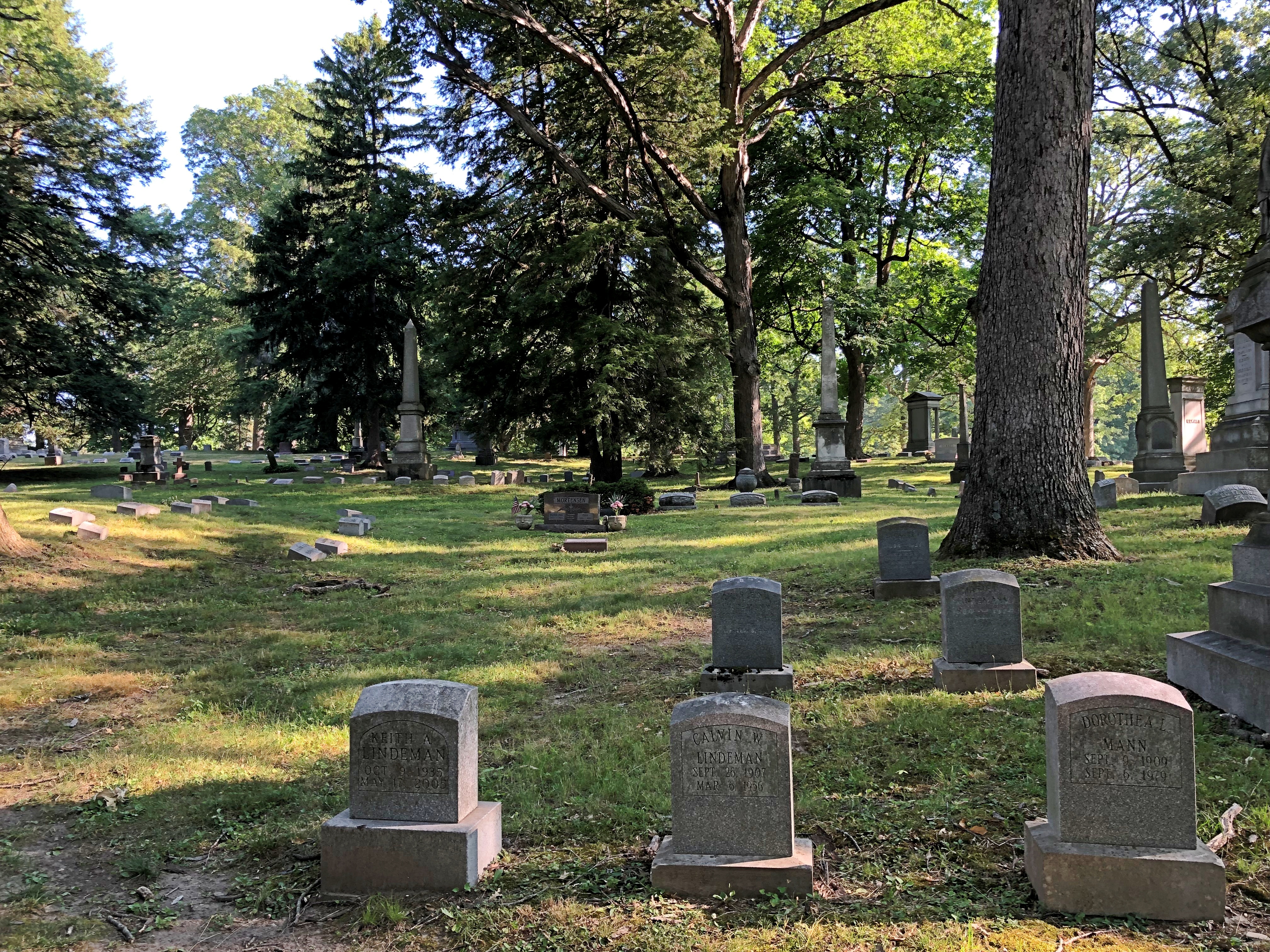
An occasional mausoleum. I’ve never seen one quite like this one.
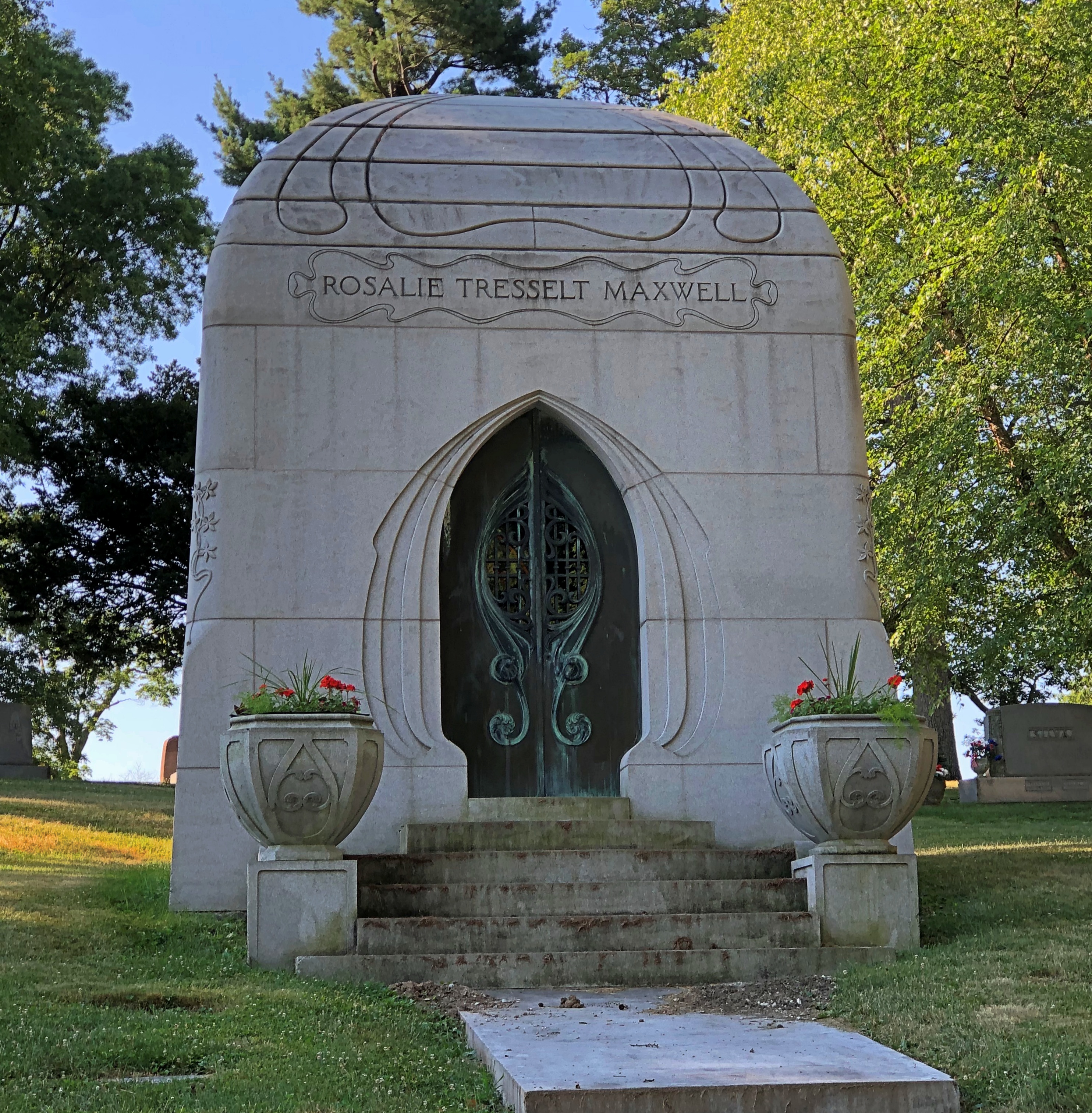
An apartment block necropolis? I hadn’t seen one quite like that, either. A more modestly priced option, probably, at least at one time.
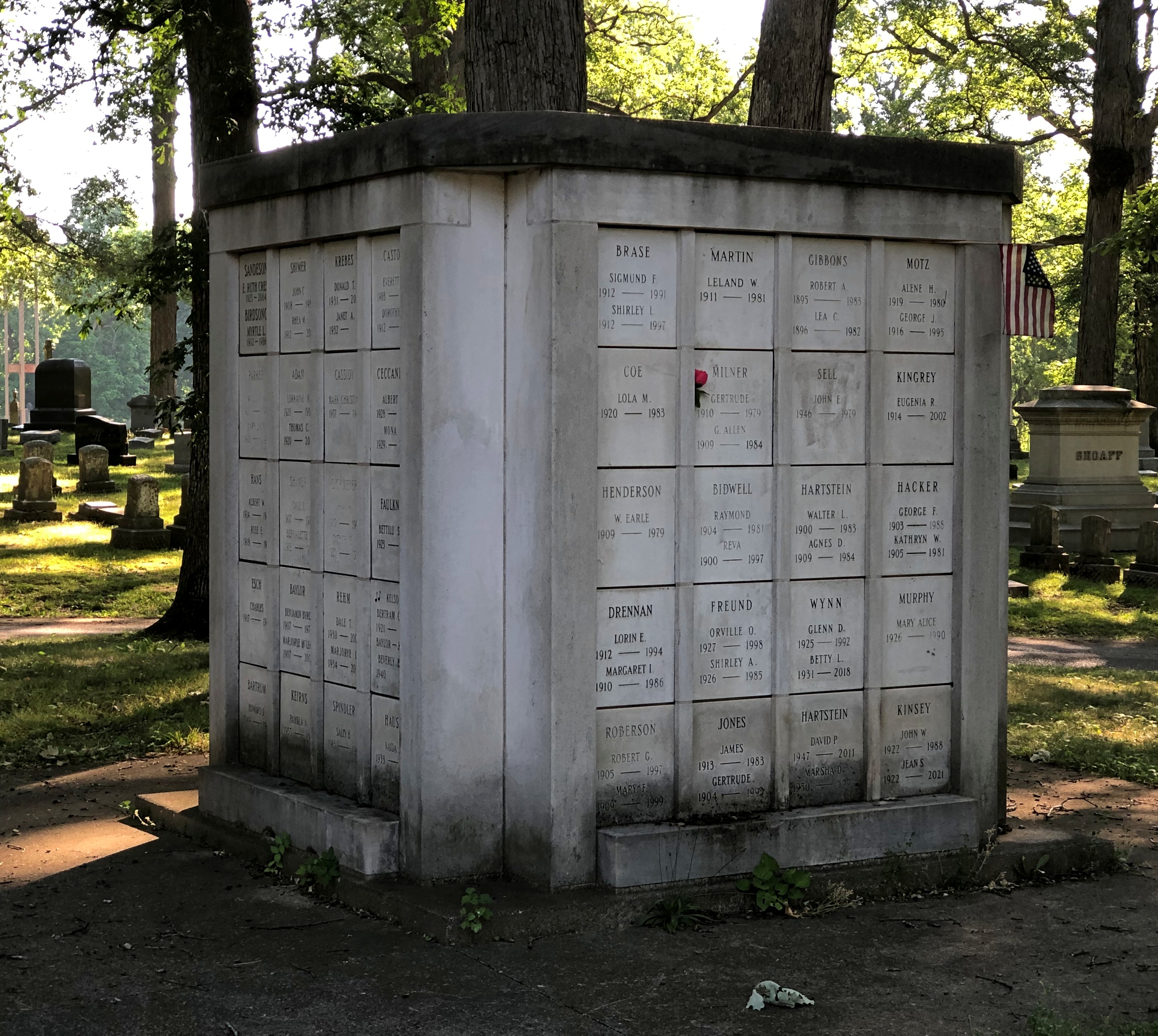
Calvin Smith (1934-88) is remembered by someone. Someone who brings treats, including the North Carolina soda Cheerwine.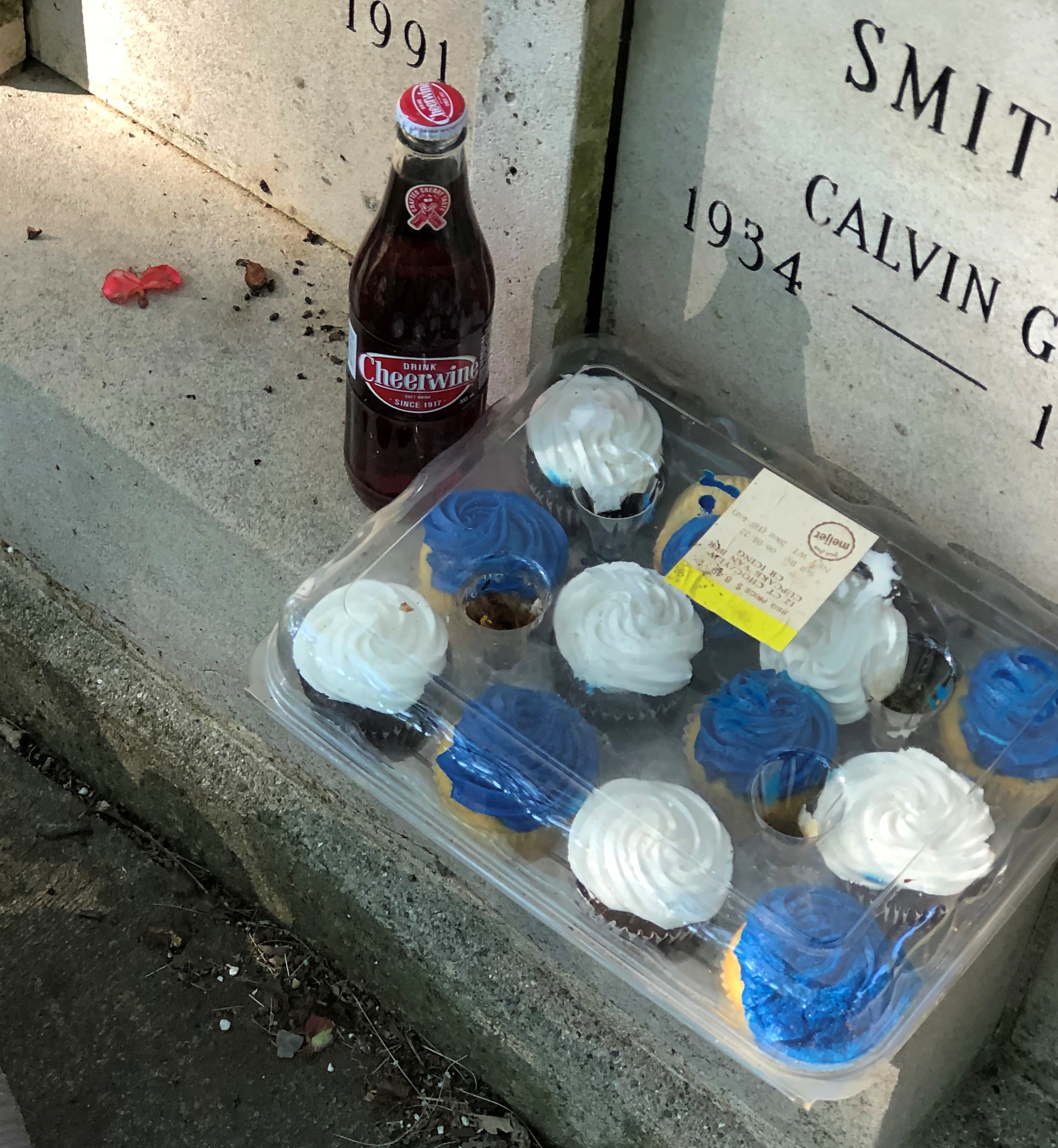
Which brings me to Johnny Appleseed, promoter of cheer cider. Hard cider, that is, something elided over in school stories about the career of John Chapman, or at least the ones I heard.
He too is buried in Fort Wayne but not, befitting his reclusive reputation, among the crowds at Lindenwood. This is Johnny Appleseed we’re talking about. He has his own park.
When I realized I was driving near his grave on Saturday evening before sunset, I took a detour to Johnny Appleseed Park, most of which features standard-issue municipal facilities, such as ballfields and picnic tables and sheltered event spaces. But one section includes Johnny’s grave.
That’s not actually the gravesite, but rather a sign about Johnny Appleseed. The nurseryman reposes on top of the hill behind the sign.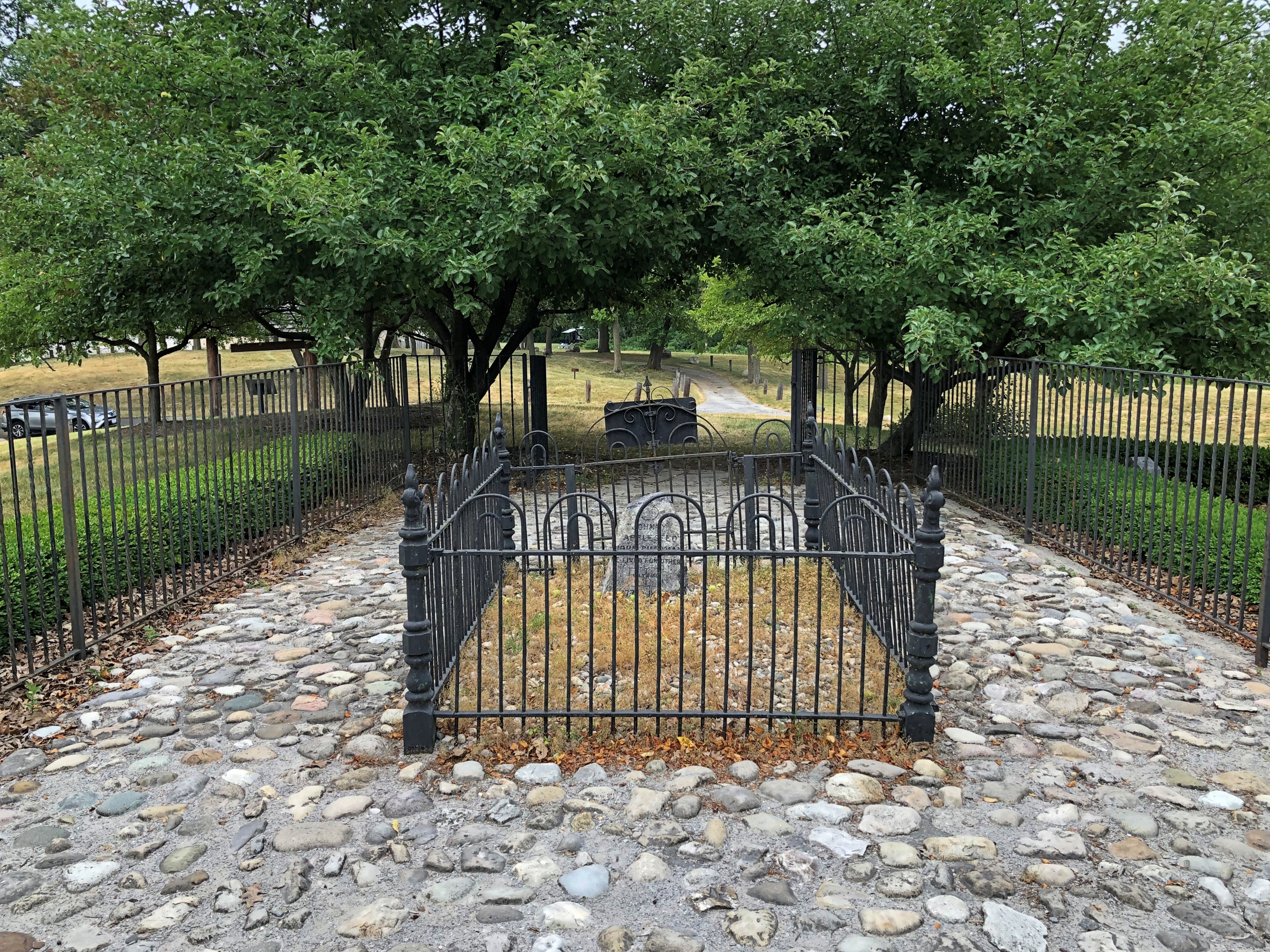
I read the sign and learned a thing or two. I didn’t know, for instance, that Chapman was also a missionary for the Swedenborgians.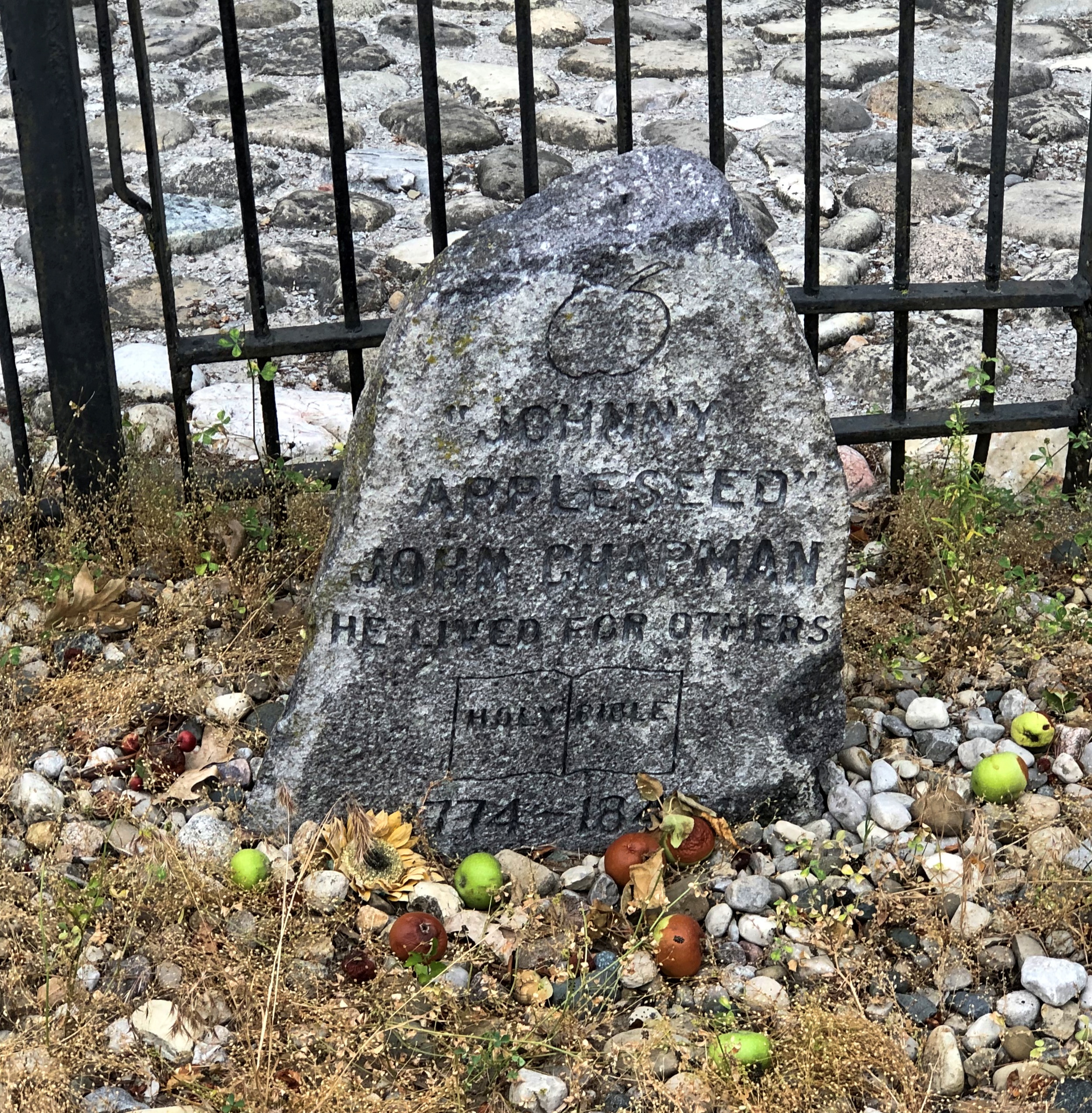
“Johnny
Appleseed”
John Chapman
He lived for others
Holy Bible
1774-1845
It took me a moment to notice the apples scattered around the stone. Then I noticed the apple trees planted around it. Nice touch.
